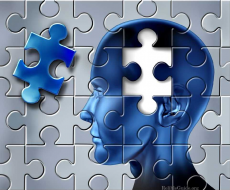
Memory is an interesting process. It is manipulated and changed by so many different factors as we go about our day-to-day business. This poses the question: How real are our memories at all? As Loftus proposed, our memories can be altered just by a word we read after the event, and her experiment dealt with memories of car crashes, not even just those of everyday experiences. It’s actually quite worrying that our memories are so easily changed and in some ways lost, but it is important to remember that the reason behind these memory problems is actually a good one.
Some of these problems can be linked back the Festinger’s ideas on cognitive dissonance, since if we later read about an event and it was different to how we remember it, an uncertainty will be caused. This can be resolved by our mind changing only the relevant information about the memory, so that we can accept the rest of our memory as correct. The majority of our beliefs about the memory are then retained. This is primarily to maintain the health of our mind, since otherwise there will be so many opposing beliefs that we will not know which to believe and life would become very confusing.
Our memories are also affected by our focus when the memory was encoded, since when there is something dramatic going on our focus will be almost entirely on that and we will not notice other things that are going on. As well as this, if we are told to focus on a specific piece of information in a video, we will miss other things that are going on, no matter how absurd. This can be shown in quite a well-known video clip where you are told to pay attention to how many times a certain team passes a ball. Since most people are so focussed on counting the number of passes, they do not notice that a man in a gorilla costume joins in the game. This feature can however be useful since it helps us to retain only the most important information about an event and only that data that we need, but can also cause problems when we do not know what is important to focus on or when in a crime scene and a threatening object is used. In this case, the object is all that is remembered, rather than any details about the identity of the criminal.
Finally, we are able to remember details about an event much better when we are in the context, situation or location again than when we are in a different one. This is shown with witnesses of crimes, who can remember details of events again much better when taken back to the crime scene or when asked to imagine it in police interviews. This is useful since it allows us to much more easily access the memories that are relevant, but can cause problems when trying to remember things quickly that are not directly relevant at the time.
It is perhaps the case that our memories have developed these features over time and through evolution in order to be most efficient, but perhaps they are not best developed yet for modern society and its requirements, which are different to those of the developing human. At least by understanding these qualities through psychological study we can aid memory through our own procedures and somewhat cancel out these problems when we need to. Our knowledge of our own mind and its capabilities alone holds the potential to make the human mind stronger and more suited to today’s society.
Image from: https://lymeinside.files.wordpress.com/2014/07/memory-puzzle.jpg

0 Comment:
Be the first one to comment on this article.